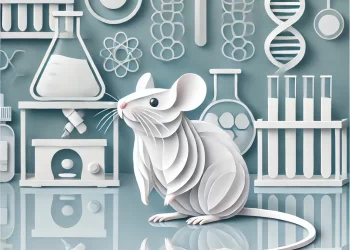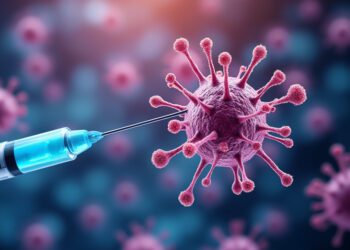Study: “Identification and Characterization of a Small Molecule Bcl-2 Functional Converter”
Publisher: AACR
Published date: March 2024
PubMed link to study: https://pubmed.ncbi.nlm.nih.gov/38329389/
In the field of anti-aging and longevity, a critical aspect is understanding how to manage and potentially eradicate age-related diseases like cancer. Recently, an exciting scientific discovery has been made that could impact the way we treat certain types of cancer, directly impacting our ability to live longer and healthier lives.
Researchers have discovered that a small molecule called BFC1108 blocks cancer cell survival mechanisms and kills them. BFC1108 is able to transform a cancer cell’s anti-apoptotic protein, Bcl-2, into a pro-apoptotic form. This new approach could pave the way for more effective therapies against cancers that exploit Bcl-2, such as triple-negative breast cancer.
Feel welcome to share your own thoughts on this research in the comment section below as well. I will be happy to discuss and learn more about how you see its potential in this field.
What is Bcl-2 and Why is it Important?
Bcl-2 is a protein known for its role in preventing cell death (apoptosis). While this might sound beneficial, in the context of cancer, Bcl-2 can actually enable cancer cells to evade death, making them resistant to treatment.
Cancer cells often overexpress Bcl-2 to protect themselves from being destroyed, thereby contributing to tumor growth and metastasis.
A New Approach: Converting Bcl-2 into a Cancer Killer
Researchers have discovered a small molecule, named BFC1108, that can effectively convert Bcl-2 from a protector into a destroyer. Unlike conventional treatments that attempt to inhibit Bcl-2, BFC1108 induces a conformational change in Bcl-2, exposing its BH3 domain.
This shift turns Bcl-2 into a pro-apoptotic (pro-death) protein, promoting the destruction of cancer cells. As such BFC1108 blocks cancer cell survival mechanisms and eliminates the cancer cells.
How BFC1108 Works
The study tested BFC1108 in various cancer cell types, including breast and lung cancer cells. In these experiments, BFC1108 was found to selectively induce apoptosis in cells overexpressing Bcl-2. Importantly, the more Bcl-2 a cancer cell expressed, the more susceptible it was to BFC1108’s effects.
This finding is significant because it suggests that BFC1108 could target cancer cells more precisely, sparing normal cells and potentially reducing side effects.
Promising Results from Animal Studies
In mouse models, BFC1108 showed remarkable effectiveness against triple-negative breast cancer (TNBC), a particularly aggressive form of cancer that often overexpresses Bcl-2.
Mice treated with BFC1108 demonstrated significant reductions in tumor growth and lung metastasis compared to untreated controls. Moreover, the treatment did not result in notable side effects, such as weight loss, highlighting its potential safety in clinical settings.
Why Is This Discovery Important for Anti-Aging?
Cancer is a significant barrier to achieving longer, healthier lives. Targeting specific mechanisms like Bcl-2 that allow cancer cells to survive provides a new approach for developing therapies that could more effectively eliminate cancers without damaging healthy tissues.
This aligns with the broader goals of anti-aging research to prevent age-related diseases and extend the human lifespan.
Looking Forward: The Potential of BFC1108
While BFC1108 blocks cancer cell survival mechanisms, this novel therapeutic strategy goes beyond that. By converting a protein that usually protects cancer cells into one that promotes their death, BFC1108 provides a new way to attack cancers that rely heavily on Bcl-2 for their survival.
Hopefully research on the BFC1108 molecule continues, and reaches clinical trials in humans. It will be interesting to follow its development, and to understand if the findings translate to humans. This potential treatment provides hope for more targeted and effective cancer treatments.
In Summary
BFC1108 could potentially be a game-changer in the fight against cancers that exploit Bcl-2. It is an exciting development not only for the field of cancer research, but also in the field of anti-aging and longevity.
While more research is needed, the ability to selectively target and destroy cancer cells could significantly impact our ability to live longer and healthier lives free from the burden of cancer.




